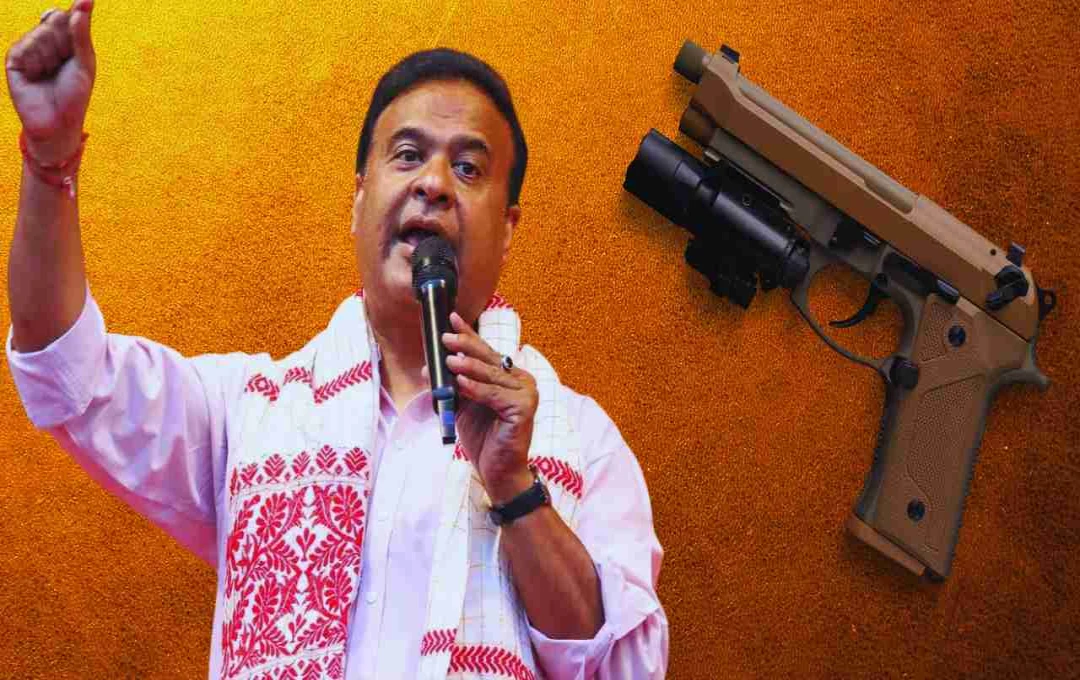A decision has been made in Assam to issue weapon licenses to certain minority Hindu indigenous residents. This step is intended to enhance their security. In the country, obtaining a weapon license requires a background check, application, and police inquiry.
Weapon License: Assam Chief Minister Himanta Biswa Sarma has recently taken a controversial and much-discussed decision. He has instructed the issuance of weapon licenses to minority Hindu indigenous residents living in certain areas of Assam. This move is primarily for those regions where the Hindu community is significantly smaller in number and concerns about security are increasing. The Chief Minister has implemented this policy, citing the need for security, which has sparked new political and social debates in the state.
Who will get a Weapon License in Assam?
Chief Minister Himanta Biswa Sarma has clarified that indigenous residents in districts where Hindus are in the minority and where their security is threatened can obtain weapon licenses under the legal process if they wish.
He cited the examples of South Salmara-Mankachar, Bhagbar, and some other districts, stating that in many villages, only a few hundred followers of Sanatan Dharma live among 30,000 people. In such areas where the local Hindu community is in a vulnerable position, they will be given the right to self-defense. The Assam government approved the issuance of weapon licenses to citizens residing in sensitive and remote areas in May 2024.
General Procedure for Obtaining a Weapon License

Obtaining a gun or arms license in India is not easy. The process is governed by the Arms Act of 1959. Only Non-Prohibited Bore (NPB) guns can be purchased by ordinary citizens. For this, the applicant has to obtain an application form from the local Superintendent of Police, which is also available online. The police investigate the applicant's address, background, and criminal record.
In addition, the applicant is also questioned about their physical and mental fitness. The most important question is why you need a gun? If the reason is found to be valid, the license is issued.
Objective of Assam's New Policy
The weapon license policy adopted by the Assam government aims to give local indigenous residents the right to their security, especially in areas where there is a Muslim majority of Bangladeshi origin and the Hindu minority is in a weak position. Increasing the sense of security in districts like Dhubri, Nagaon, Morigaon, Barpeta, Goalpara, and South Salmara-Mankachar is a major goal of this policy.
The Chief Minister said that this policy is not to militarize citizens but is necessary for their self-defense. This demand has been ongoing in Assam since 1985, but no government has taken steps on it until now.
Assam's Policy and the Balance of Security

Opposition to the weapon license policy in Assam is also gaining momentum. Trinamool Congress MP Sushmita Dev has called it an attack on the credibility of the Assam government. She says that while the government can issue weapon licenses, it cannot control how the gun will be used. Once a weapon is obtained, it can be misused. Additionally, she described the definition of 'indigenous resident' as unclear and alleged that this policy promotes a sense of insecurity among the people of Assam.
Legal Procedure for Weapon Licenses Across the Country
Obtaining a weapon license in India is a long and stringent process. Citizens must first apply, and then the license is granted only after background checks, inquiries, and fitness tests by the local police and other authorities. The purpose behind this is to ensure that weapons go into the right hands and that safety is ensured. Licenses are issued only to those whose lives are in real danger or who have valid reasons.
The Dilemma of Assam's Policy and Security
Assam's new policy, on one hand, is an attempt to assure security to local Hindu minorities, while on the other hand, it can also increase social tension. The distribution of weapons can increase the risk of violence along with security at the social level. Therefore, it is necessary for the government to maintain caution and transparency while implementing this policy.










